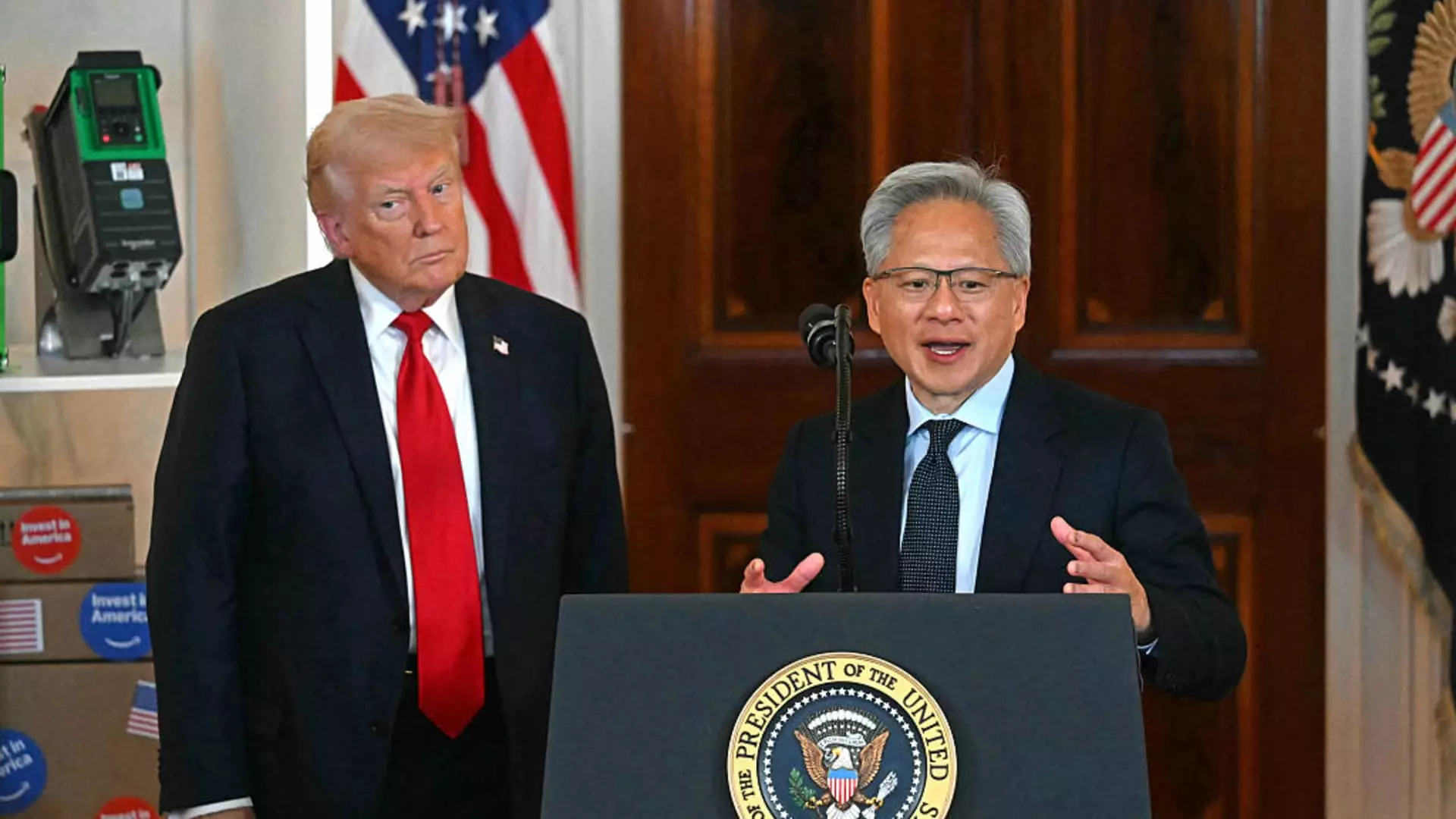In an era where technological dominance defines geopolitical power, any move that jeopardizes this edge raises profound concerns. Recent developments reveal a troubling willingness within certain political corridors to prioritize short-term revenue over the foundational security of the nation. The decision by President Trump to permit Nvidia and AMD to sell AI chips to China in exchange for a mere 15% cut blatantly exposes a shortsighted approach that underestimates the long-term costs of weakening America’s technological supremacy. While financial incentives might seem appealing on a surface level, they dangerously undermine the essential strategic advantage that innovation confers in modern global conflicts. The gamble here is that economic benefits can be harvested at the expense of core national interests—an audacious but reckless gamble that disregards the risks of empowering an adversary with cutting-edge AI capabilities.
The Erosion of Competitive Edge Through Counterproductive Deals
The concept of “negotiating” away one’s technological advantages epitomizes a perilous form of strategic surrender. Selling advanced AI chips like Nvidia’s H20 and AMD’s MI308 to China, despite promises to the contrary, risks bolstering a rival that already poses serious geopolitical challenges. The argument that these chips do not enhance military capabilities is, at best, a misleading oversimplification. AI is multi-dimensional; enabling civilian applications often spills over into military innovation, and China is no stranger to adapting commercial technology for military purposes. The decision to accept revenue sharing from such sales signals a troubling prioritization of immediate financial gains over the integrity of national security frameworks. It speaks to a fragile governmental posture, willing to trade essential technological dominance for a fleeting economic advantage, neglecting the core principle that technological leadership is a pillar of national sovereignty.
The Questionable Rationale of Economic Incentives in National Security Calculus
The narrative that these chip sales are harmless or even beneficial is fundamentally flawed. Nvidia’s claim that their chips do not improve military capabilities is an overly narrow interpretation that dismisses the broader possibilities of AI application. Advanced chips facilitate innovation in autonomous weapons, surveillance, and cyber warfare—domains that directly threaten U.S. interests. Furthermore, the fact that China is discouraging domestic orders of these chips indicates an awareness of the strategic threat they pose. This reluctance underscores that permitted exports could unintentionally serve as a catalyst for regional military proliferation, destabilizing already fragile security balances. The administration’s granting of export licenses under such terms reflects a dangerous underestimation of the unique nuances of AI technology’s dual-use nature and the profound implications for U.S. security.
Politicizing Technology Policies and Public Trust
This entire episode illuminates a concerning trend: the politicization of technology policy and a disturbing willingness to compromise core national interests for immediate political or financial gains. The Democrats’ call for transparency and urgent reconsideration spotlights the bipartisan recognition that these decisions may set harmful precedents. Public trust in governmental stewardship of technological leadership diminishes when policies appear driven more by transactional motives than strategic foresight. It raises fundamental questions about whether the government is truly capable of safeguarding the nation’s technological future or if short-term political calculations are eroding the very foundations of America’s innovation ecosystem. As China doubles down on strategic autonomy in tech, the laxity of recent export policies may well foster China’s ascent as a global tech leader—an outcome that cannot be allowed to unfold without resistance.
The Need for a Principled and Strategic Approach
It is imperative that policymakers reject the false dichotomy that economic benefits must come at the expense of national security. The United States must reassess its approach, prioritizing strategic integrity over short-term revenue streams. Investment in domestic research, fostering innovation ecosystems, and crafting export policies rooted in long-term security considerations are essential. Selling advanced AI chips to China without rigorous safeguards is akin to cutting the anchor line of a sinking vessel—dangerous and ultimately self-defeating. A robust, principled stance on technology exports is not only vital for maintaining leadership but also for ensuring that the U.S. remains in control of its future, rather than unwittingly surrendering it to strategic adversaries. The true strength of a nation lies not in how much profit it makes from fleeting deals but in how resolutely it defends the technological and strategic autonomy that underpins its sovereignty.


Leave a Reply